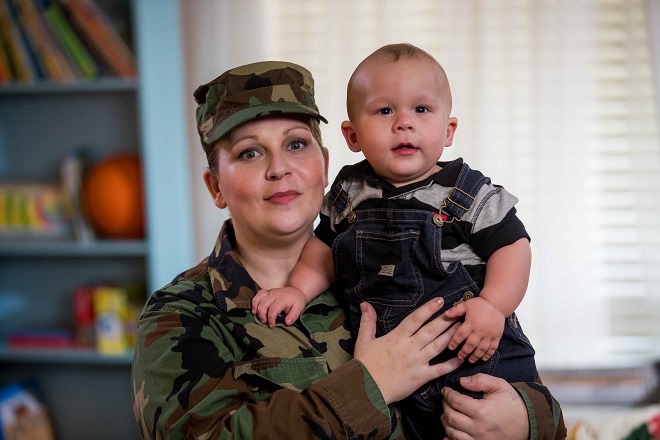Do you know where you’re sleeping tonight? On any given day in Maricopa County, 6,000 people don’t know where they’ll spend the night. They’re looking for a place to sleep under an overpass, a bush or tree, or maybe a car. Another 20 percent experience chronic homelessness, meaning they haven’t had a home for at least a year or multiple times in recent years and have a disability.
Even some of our veterans know what this is like. For example, Hannah knows all about living on the streets after suffering from substance abuse and mental health issues. “After I got out of the military, I had some bad things happen to me which lead to poverty and me being homeless,” she said.
Hannah never knew where she was going to sleep each night. “I was on a couch, in a dumpster – anywhere I could find shelter. I got so used to living in the dark, I almost didn’t know how to get out of it,” she shared.
Finding food was another challenge. “If I wasn’t at a shelter, I would steal to get food,” Hannah said. As far as living this way, Hannah said, “It never gave me anything to long for or to love or cherish.”
Hannah found help through Valley of the Sun United Way and broke the cycle of poverty and began her climb from the depths of chronic homelessness. Hannah’s now in permanent supportive housing. “When I finally got housing I had such relief,” she said. “For once, I was gonna be safe.”
As a mom, Hannah’s trying to make a better life for herself and her infant son. “My son’s such a blessing,” she said. “I wouldn’t trade him for the world. I can appreciate everything a typical family has. He’s in a calm environment, and he’s a happy baby.”
Finally, Hannah appreciates what she has in her life now. “I didn’t know that there was another way to live, another way that I could do things,” said Hannah. I’m in a secure home that I keep a roof over my head. I pay my bills. I hope that maybe my story can help somebody.”
Permanent Supportive Housing
Providing Permanent Supportive Housing to the most vulnerable in our community is a vital step to ending homelessness in the valley. This type of housing provides on-site supportive health and human services to people in need. Many individuals living in Permanent Supportive Housing apartment units have complex issues to overcome. The goal is to help these individuals take their next step to stability and independence through employment, reunification with family, and a return to medical, mental, and behavioral health.
Learn more about Permanent Supportive Housing and how you can help today.

